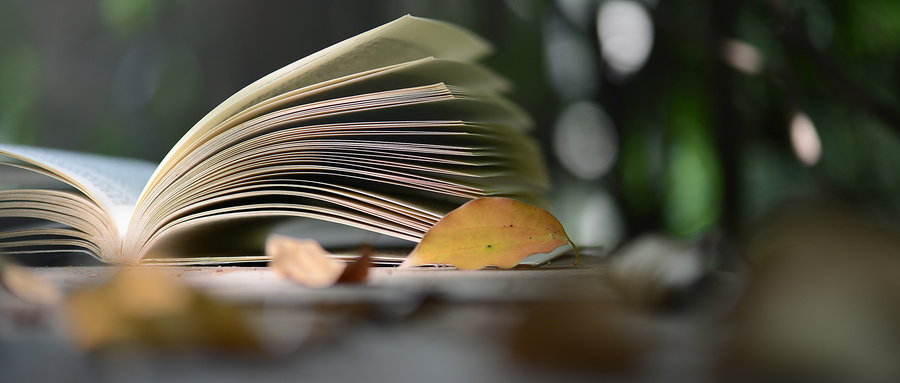【摘要】 考必过小编为大家整理了关于“2020年英语三级笔译外刊学习(11 1)”的信息,希望可以帮助到大家,下面我们就一起来看下“2020年英语三级笔译外刊学习(11 1)”的具体内容吧!

Cecilia Chiang, Who Brought Authentic Chinese Food to America, Dies at 100
With her famed Mandarin restaurant in San Francisco, she enticed diners with the dishes she grew up with, leaving the American chop suey and chow mein era far behind.
authentic /ɔː'θentɪk/ adj. 正宗的,原汁原味的
chop /tʃɒp/ n. (羊、猪等)排骨
Chop Suey /'tʃɔp'su:i/ n. (U) 炒杂碎(中式菜,碎肉和蔬菜一起炒后就米饭吃)
chow mein /ˏtʃau ˈmeɪn/ n. (U) 炒面
Cecilia Chiang, whose San Francisco restaurant, the Mandarin, introduced Americandiners in the 1960s to the richness and variety of authentic Chinese cuisine, died on Wednesday at her home in San Francisco. She was 100.
diner /'daɪnə/ n. (餐馆里的)进餐者
richness /'ritʃnis/ n. (颜色)浓烈;(味道或气味)浓郁;(声音)低沉浑厚
Her granddaughter Siena Chiang confirmed the death.
Ms. Chiang came to the United States from China as a daughter of wealth who had fled the Japanese during World War II, traveling nearly 700 miles on foot. Once in San Francisco, she proceeded, largely by happenstance and almost single-handedly, to bring Chinese cuisine from the chop suey and chow mein era into the more refined one of today, enticing diners with the dishes she ate growing up in her family’s convertedMing-era palace in Beijing.
happenstance /'hæp(ə)n,stæns/ n. 巧合
single-handedly /'singl'hændidli/ adv. 独力地,单独地
entice /ɪn'taɪs/ vt. 诱惑; 诱使
convert /kən'vɜːt/ vt. 使转变; 使转换; 使改造
The Mandarin, which opened in 1962 as a 65-seat restaurant on Polk Street in the Russian Hill section and later operated on Ghirardelli Square, near Fisherman’s Wharf, offered patrons unheard-of specialties at the time, like potstickers, Chongqing-style spicy dry-shredded beef, peppery Sichuan eggplant, moo shu pork, sizzling rice soup and glacéed bananas.
patron /'peɪtr(ə)n/ n. 老主顾;顾客;常客
unheard-of /ˌʌn'hə:dɔv/ adj. 前所未闻的;空前的;很反常的
specialty /'speʃ(ə)ltɪ/ n. (某人、饭馆或地方的)特色食品
potsticker n. 锅贴
shred /ʃred/ vt. 把…切成细条; 把…撕成碎片
moo shu pork 木须肉
sizzling /'sizliŋ/ adj. 很热的
glacé /ˈɡlæseɪ/ adj. having a smooth, glazed or glossy surface, such as certain silks or leathers
This was traditional Mandarin cooking, a catchall term for the dining style of the well-to-do in Beijing, where family chefs prepared local dishes as well as regional specialties from Sichuan, Shanghai and Canton.
catchall /'kætʃɔːl/ adj. 无所不包的; 笼统的
well-to-do /'weltə'du:/ adj. 富有的,有钱有地位的
In a profile of Ms. Chiang in 2007, The San Francisco Chronicle wrote that her restaurant “defined upscale Chinese dining, introducing customers to Sichuan dishes like kung pao chicken and twice-cooked pork, and to refined preparations likeminced squab in lettuce cups; tea-smoked duck; and beggar’s chicken, a whole bird stuffed with dried mushrooms, water chestnuts and ham and baked in clay.”
kung pao chicken 宫保鸡丁
twice-cooked pork 回锅肉
lettuce /'letɪs/ n. 生菜,莴苣
mince /mɪns/ vt. (通常用机器)切碎,剁碎,绞碎(食物,尤指肉)
squab /skwɒb/ n. 乳鸽
tea-smoked duck 樟茶烤鸭
beggar's chicken 叫化鸡
water chestnut n. 荸荠
ham /hæm/ n. 火腿,火腿肉
bake /beɪk/ v. 烘,烤,焙
clay /klei/ n. (U) 黏土
The restaurant became a shrine for such food-world luminaries as James Beard, Marion Cunningham and Alice Waters, who said that Ms. Chiang had done for Chinese cuisine what Julia Child had done for the cooking of France.
shrine /ʃraɪn/ n. 具有重要意义的地方
luminary /'luːmɪn(ə)rɪ/ n. 名人,杰出人物
That sentiment was echoed by the food magazine Saveur in 2000, when it wrote that the Mandarin had “accomplished nothing less than introducing regional Chinese cooking to America.”
sentiment /'sentɪm(ə)nt/ n. 意见,观点,感想
The food scholar Paul Freedman included the Mandarin in his historical survey “Ten Restaurants That Changed America” (2016).
Like Mrs. Child, Ms. Chiang was not a chef, nor was she a likely candidate to run a restaurant. She was born Sun Yun near Shanghai in 1920 — the precise date is unclear — the seventh daughter in a family of nine girls and three boys. Her father, Sun Long Guang, was a French-educated railway engineer who retired at 50 to pursue reading and gardening. Her mother, Sun Shueh Yun Hui, came from a wealthy family that owned textile and flour mills. After her parents died, Sun Yun managed the businesses’ finances while still in her teens.
pursue /pə'sjuː/ vt. 追求,继续进行
flour /'flaʊə/ n. (U) 面粉; 谷物磨成的粉
The Ming-era palace in which she grew up occupied an entire block in Beijing, where the Chiangs moved in the mid-1920s. Children were not allowed in the kitchen, but she paid close attention on trips to the food markets with her mother and listened carefully as detailed instructions were issued to the cooks.
After the Japanese occupied Beijing in 1939, the family’s fortunes became precarious. In early 1943, Cecilia, as she was called by her teachers at the Roman Catholic Fu Jen University, left to join relatives in Chongqing.
precarious /prɪ'keərɪəs/ adj. (局势或状态)不稳定的,不安全的,危险的
In her long journey, much of it by walking, she survived on a few gold coins sewed into her clothes, her only assets after Japanese soldiers had stolen her suitcase.
In Chongqing she found part-time work as a teacher of Mandarin at the American and Soviet embassies. She also met and married Chiang Liang, whom she had known as an economics professor at Fu Jen University and who was by then a tobacco company executive.
tobacco /tə'bækəʊ/ n. 烟叶;烟草
executive /ɪg'zekjʊtɪv/ n. (机构或公司的)主管,经理
The couple moved to Shanghai after the war. In 1949, when Communist forces were poised to take over China, Mr. Chiang was offered a diplomatic post in Tokyo at the Nationalist Chinese Mission.
poised /pɔɪzd/ adj. 准备好(做某事); 蓄势待发
Two years after arriving in Tokyo, Ms. Chiang opened a Chinese restaurant there, the Forbidden City, with a group of friends. It was an instant success, attracting Chineseexpatriatesand Japanese diners as well.
expatriate /ɪks'pætrɪət/ n. 居住国外的人; 侨民
Ms. Chiang sailed to San Francisco in 1960 to help her sister Sun, whose husband had just died. There she met two Chinese acquaintances from Tokyo, women who had recently emigrated to the United States and who wanted to open a restaurant. Ms. Chiang agreed to put up $10,000 as a deposit on a store they had found, on Polk Street, far from the city’s Chinatown.
When the two women backed out, Ms. Chiang found to her horror that the deposit was not refundable. She took a deep breath and decided to open the restaurant herself rather than tell her husband that she had lost the money.
back out 变卦,打退堂鼓; 食言
refundable /rɪˈfʌndəbl/ adj. 可退还的;可偿还的
“I began to think that if I could create a restaurant with Western-style service andambienceand the dishes that I was most familiar with — the delicious food of northern China — maybe my little restaurant would succeed,” she wrote in the second of her two cookbook memoirs, “The Seventh Daughter: My Culinary Journey from Beijing to San Francisco” (2007, written with Lisa Weiss). The first was “The Mandarin Way” (1974, with Allan Carr).
ambience /'æmbɪəns/ n. (sing.) 环境;气氛;格调
Through a newspaper ad, Ms. Chiang found two talented chefs, a married couple from Shandong, and in no time the restaurant was up and running. The early days were difficult. Local suppliers, who all spoke Cantonese, refused to deliver to the Mandarin and would not extend credit. The menu, with 200 dishes, was unmanageable. Ms. Chiang, short on help, scrubbed the kitchen floors herself.
in no time (at all) / in next to no time 立刻,马上
Cantonese /ˌkæntəˈni:z/ n. 粤语,广东话
extend /ɪk'stend/ v. 持续; 延长,推延(期限)
credit /'kredɪt/ n. (U) 赊购; 信贷
be short on sth 缺乏某物
scrub /skrʌb/ v. (尤指用硬刷子)擦洗,擦净
But little by little, Chinese diners, and a few Americans, came regularly for hot and sour soup and pan-fried potstickers. One evening, Herb Caen, the popular columnist for The Chronicle, dined at the restaurant. In a subsequent column, he called it “a little hole-in-the wall” that was serving “some of the best Chinese food east of the Pacific.”
Overnight the tables filled. Lines formed outside the door. The Mandarin was on its way. In 1968, Ms. Chiang moved the restaurant to larger quarters on Ghirardelli Square, where she could accommodate 300 diners and offer cooking classes.
In 1975 she opened a second Mandarin, in Beverly Hills, Calif. She sold it to her son, Philip, in 1989. He later helped create the P.F. Chang’s restaurant chain. He survives her, as do her daughter, May Ongbhaibulya; three granddaughters; and three great-grandchildren.
Ms. Chiang sold the original Mandarin in 1991. It closed in 2006.
Ms. Chiang continued to work as a restaurant consultant into her 90s. The director Wayne Wang made a documentary about her, “Soul of a Banquet,” which was released in 2014, and in 2016 the San Diego PBS station KPBS broadcast a six-part series, “The Kitchen Wisdom of Cecilia Chiang.”
“I think I changed what average people know about Chinese food,” Mrs. Chiang told The Chronicle in 2007. “They didn’t know China was such a big country.”
Alex Traub contributed reporting.
江孙芸生于1920年,本名孙芸,出身权贵世家,从小锦衣玉食,懂得中华美食的精粹。丈夫江梁曾经是商人,也是外交官。在历经战乱之后,她迁居日本,随后在1959年来到旧金山。初来旧金山时,她发现当地的中餐厅水平较低,大为震惊。接着她创办了高档中餐厅“福禄寿”(The Mandarin),以行外人的角度走入餐饮界,却一举成名,让“福禄寿”风靡全城,革新了美国人对中餐的印象。
江孙芸(Cecilia Chiang,1920年-2020年10月28日),本名孙芸,早年在旧金山创办的高档中餐厅“福禄寿”在二十世纪六七十年代把地道中餐带到美国主流社会,她本人也被誉为推广中餐功不可没的“中餐女王”。
2020年10月28日,江孙芸在旧金山家中离世,享年100岁。
或许一些新移民和年轻人对她的名字感到陌生,但是江孙芸一生传奇,在美国餐饮界,谁若不认识她的名字,绝不敢以老饕自居。
她改变了美国对中餐馆的印象,她是美国中餐业界的一个传奇。基辛格、瑞典国王、披头士乐队......都是她的座上宾。
曾经开设中餐厅掀起美国中餐的革命性改变,她的离世也宣告一个时代的落幕。
江孙芸的多年好友、前旧金山副市长James Ho透露,江孙芸在28日周三凌晨3时40分左右因自然原因去世,虚岁高龄已经101岁。
今天几乎所有的主流媒体都报道了她的死讯。
“不知道多么伤心”James Ho说,自己和江孙芸认识几十年,经常一起吃饭喝酒,无话不谈。他说,江孙芸在餐饮界的地位他人难以企及,别人很难学她那样,因为江孙芸见得多,看得到,而且敢批判,同时又对人诚恳。
以上就是考必过小编为大家整理的关于“2020年英语三级笔译外刊学习(11.1)”的相关信息,想了解更多考试最新资讯可以关注考必过。
